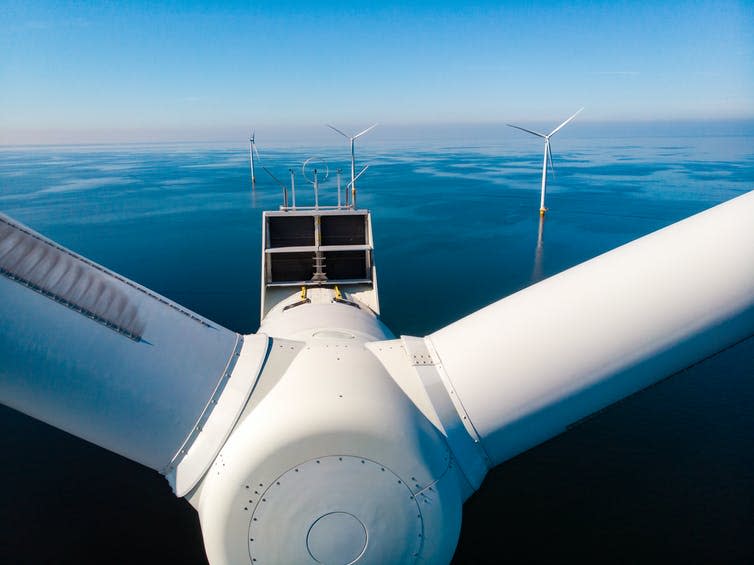Three possible futures for global climate scepticism
Climate change scepticism has been present in politics for as long as climate change itself. Part of a wider outlook of environmental scepticism, it encompasses a range of views from outright denial that the world is warming through to attempts to downplay or sideline the risks stemming from a changing climate.
For most of its history, climate scepticism was a niche political tendency, and where it did exist the more vocal forms tended to be the minority. But an increasingly globalised world and a proliferation of climate-sceptical leaders have made it a global force.
This was best exemplified by Donald Trump’s candidacy and presidency. Trump described climate change as a “hoax” and withdrew the US from the Paris Agreement. He shepherded into the mainstream a more overtly right-wing populist variation of environmental scepticism in which environmentalists are framed as part of the “corrupt elite” acting against the interests of the “pure” people.
But with Trump’s presidency giving way to Joe Biden’s, what are the future prospects for environmental scepticism? There are three broad scenarios:
1: Retreat
In the first possible scenario, global climate scepticism will fade into obscurity and return to its previous niche position, its influence limited to true believers. This is the most appealing scenario for anyone hoping to address the climate emergency. However, given that climate change denial and other manifestations of environmental scepticism existed and had political influence before Trump, it is likely that they will not disappear quietly.
In countries which are not currently led by deniers, it may be possible to sideline the more extreme ideas in the mainstream media. In the UK, media regulator Ofcom’s use of sanctions to deal with coronavirus misinformation could provide a framework for doing this. Of course, this in itself could have the unfortunate side effect of creating a backlash against perceived censorship.
2: Re-liberalisation
The second possible future involves a retreat from right-wing populist scepticism and outright climate denial, and a movement back towards the more “liberal humanitarian” varieties.
The most prominent example of this strand is the political scientist Bjorn Lomborg, whose book The Skeptical Environmentalist set the tone for climate scepticism in Europe from the early 21st century. Global warming is happening, in his view, but its threat has been exaggerated. Lomborg makes a resource-based argument for reducing the priority given to climate change: we do not, he argues, have the money to address every threat, so we should focus our efforts on solving problems posing a greater immediate threat to human life, such as malnutrition or disease.
Arguments like this fit neatly with the current concerns of UK chancellor Rishi Sunak, who has made similar objections to prime minister Boris Johnson’s plans for a “green industrial revolution”, and more generally with the complexities of incorporating green elements into pandemic relief efforts.
It is likely that the more moderate and scientifically-aware climate scepticism of Lomborg and newcomers to the scene such as “ecomodernist” and nuclear energy advocate Michael Shellenberger will grow in influence if the Trumpian variety fades.
3: Business as usual
While the US is no longer led by a climate change denier, the populist strain of global climate scepticism is still well represented around the world. As such, it is possible to imagine climate scepticism continuing in a similar manner as before, albeit with a temporary reduction of geopolitical power.
Poland’s recently re-elected president Andrzej Duda is a case in point, tying a defence of his country’s coal industry into a nationalist critique of EU decarbonisation policies. Australia’s prime minister Scott Morrison could rival Duda in his protectiveness of the coal industry, while Brazil’s Jair Bolsonaro has even denied the existence of widespread forest fires in the Amazon. Taken individually, none of these leaders rivals a US president’s impact on the global political scene. However, collectively, they have the potential to form the nucleus of a global anti-environmentalist bloc.
And what of the US and the UK in this scenario? The low-key but persistent backlash against the pro-environmental policies of Joe Biden and Boris Johnson suggest a holding pattern is in place. For climate sceptics in both countries, the likely aim will be to delay policies coming into effect or knock the more effective edges off them before they can be enacted, rather than halting them altogether.
This list is of course highly speculative, based on early indications. It is likely that the scenarios I’ve just listed will each pan out in some form, with some blurring at the edges between them. For example, re-liberalisation could occur in countries where it would gain the most sympathy, with business as usual in countries led by vocal climate sceptics. A partial retreat could also be combined with re-liberalisation in some cases.
The least likely scenario, however, is the one in which climate scepticism ceases to be a force to be reckoned with.
Editor’s note on correction: This article has been amended to remove reference to Zion Lights, who was incorrectly identified as a climate sceptic. Zion Lights tells us, which we accept, that they have never questioned the science on climate change and have in fact been active in the movement for effective action on global warming
This article is republished from The Conversation under a Creative Commons license. Read the original article.

Eloise Harding does not work for, consult, own shares in or receive funding from any company or organisation that would benefit from this article, and has disclosed no relevant affiliations beyond their academic appointment.

 Yahoo Finance
Yahoo Finance 
